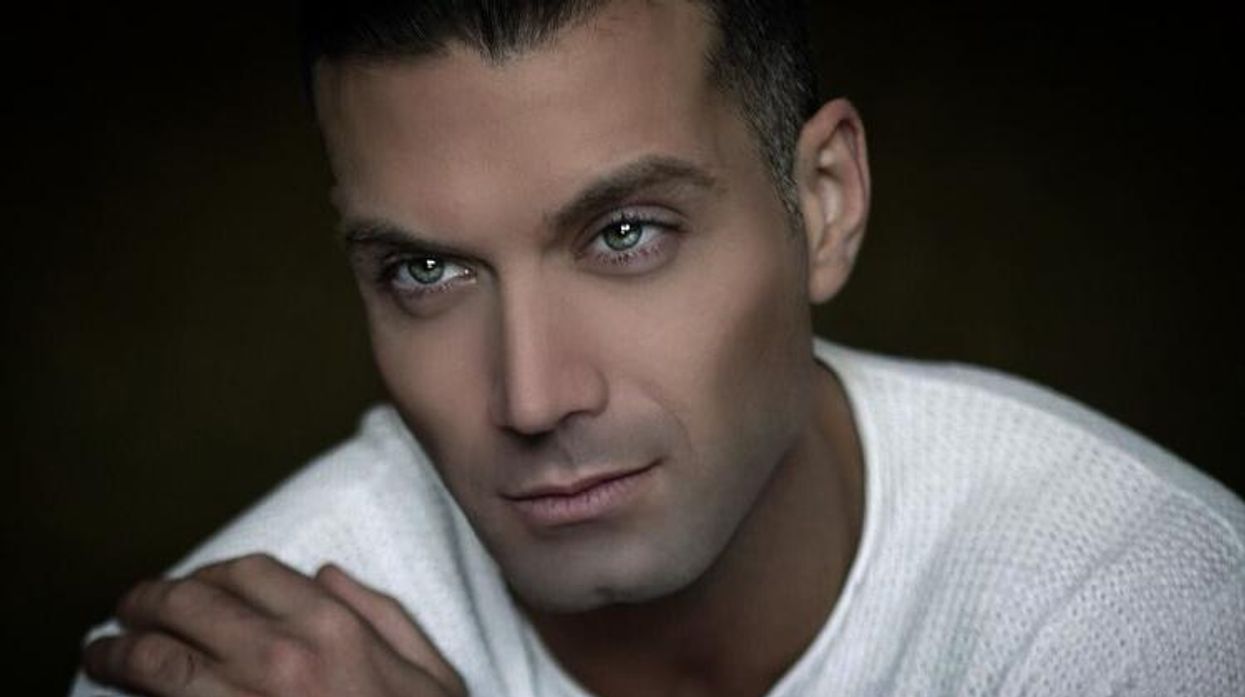Voices
Omar Sharif Jr: COVID-19 Has Super-Charged LGBTQ Marginalization

Vulnerable communities suffer the most during crises like this.
April 24 2020 1:52 PM EST
By continuing to use our site, you agree to our Privacy Policy and Terms of Use.

Vulnerable communities suffer the most during crises like this.
For generations, LGBTQ people around the globe have suffered the repressive isolation that comes from living in the closet. Locked away we were afraid to live our full and authentic lives, we held captive our innermost emotions and desires, and we feared the repercussions of coming out.
Today, one-third of the world's population is under some form of lockdown; the consequences of coming out are just too severe. A certain degree of loneliness, desperation, and anxiety has become many of our realities. You just wish you could embrace the one you love after being denied for six weeks, try waiting 10-plus years. Quarantine is a closet that we now all share.
As a child, I often feared leaving the house and accidentally exposing my authentic self; I feared interacting with people, I feared bullying and beatings, and I feared the shame and pain that I might bring home to my family. Many LGBTQ people have had to fear much worse, including homelessness or even death. For too many, those fears were realized. Today, much of the planet's population has to employ extreme caution in its dealings with the outside world, lest we risk infection and harm, bringing illness and anguish into our homes and families and, still, the very real possibility of death.
As a teenager, I worried increasingly about my health -- both mental and physical. I rightly had to worry about my exposure to HIV and certain cancers. I worried about the stigma associated with those ailments and access to quality medical care and treatment. Coming out and being sexually active had its inherent risks. Today, our best common prevention to staying healthy and active are not condoms, pre-exposure prophylactics or treatment, it's distance -- a minimum of six feet. Safer spacing has replaced safer sex, clean hands have replaced dirty thoughts, lest we risk struggling to find available COVID-19 testing and reliable treatment options.
As a young adult I worried about the economic repercussions of being gay. Today, even in the United States, there is still no federally mandated employment non-discrimination provisions for LGBTQ workers. In as many as half of U.S. states, our economic security is always at risk if we choose to come out. Even in progressive Hollywood, out actors continue to have trouble finding work. With 26.5 million newly unemployed Americans filling for benefits last month alone (the most in U.S. history), this feeling of insecurity is now a universal truth.
Today we are all in the same boat. And still today, LGBTQ people are disproportionally affected. If COVID-19 was the Titanic, LGBTQ people would be on the lower decks. The LGBTQ community has a higher percentage of underlying medical conditions among its population. LGBTQ people are more likely to live in poverty and lack access to adequate healthcare, medical leave and other basic necessities. The LGBTQ population uses tobacco 50 percent more than the general population, which could makes one's prognosis considerably worse. To add insult to injury, LGBTQ people continue to face discrimination in many healthcare settings across the country.
And that's not even all.
Consider that the percentage of LGBTQ homeless youth is higher than the national average, and for those with a home, school was often their only reprieve from unaccepting or abusive families. There's a disproportionate number of LGBTQ people in the hard-hit hospitality, service, retail, and entertainment industries who are already or will be out of work. Lastly, even the smallest empowering act, that feeling that comes from doing one's part by donating blood, is still denied to many of us by the FDA and other equivalent agencies around the globe. Last month the FDA eased the restrictions on gay, bisexual, and MSM donating blood in a way that still leaves far too many out without just cause. Let's be perfectly clear, the undue discrimination has been eased, but not erased. The stigma remains stifling; even in times of crisis, stigma still trumps science.
Today we fight an invisible enemy called COVID-19, but for long the LGBTQ community has fought invisible attitudes. Hatred and homophobia that would only manifest themselves as they were already striking us down with loneliness, pain and despair.
Tomorrow is a new day and the world will inevitably overcome COVID-19. Let us hope that this shared suffering might finally reveal a lowest common denominator among us, so that we may use the pandemic as unifying moment that finally brings us together: To combat homophobia, to embrace our differences and to find commonality in our common humanity. Today we are one.
Welcome to the closet. I can't wait to come out with you.
Omar Sharif Jr. is an Egyptian-Canadian Actor and LGBTQ activist. He is the former National Spokesperson for GLAAD and an Ambassador for the Elizabeth Taylor AIDS Foundation. He is said to be the first public personality to come out as gay in the Arab world. Omar holds a Master's Degree in Comparative Politics from the London School of Economics.
Charlie Kirk DID say stoning gay people was the 'perfect law' — and these other heinous quotes